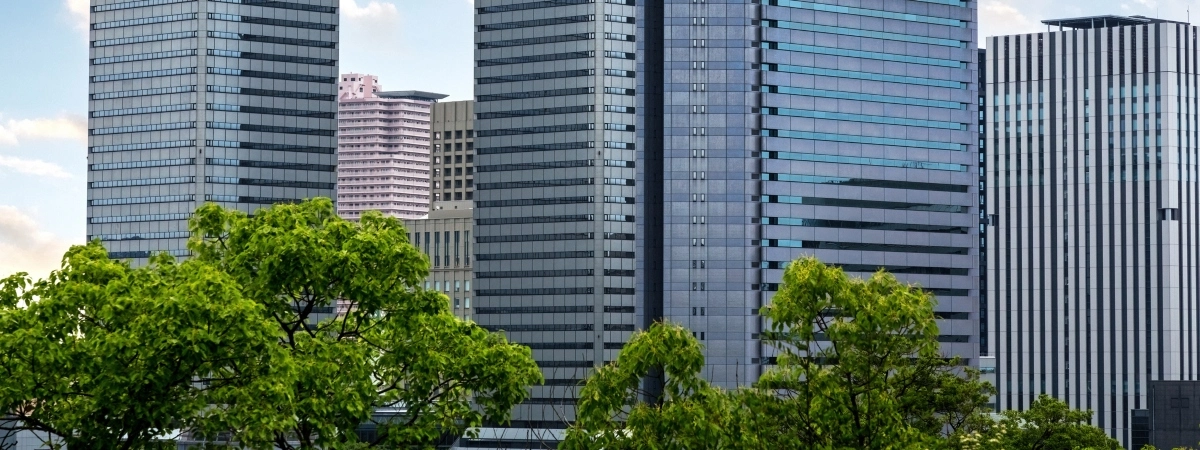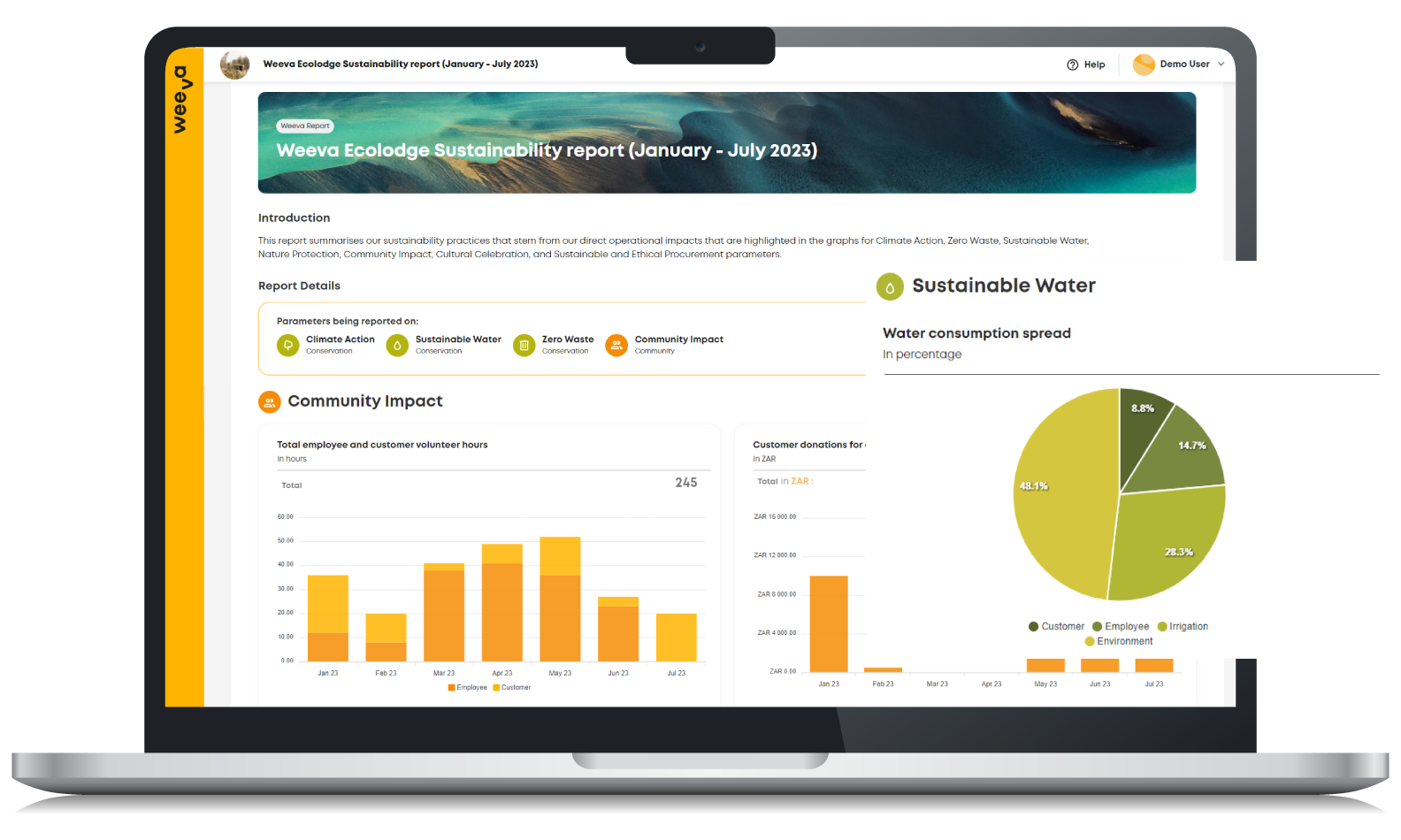World Tourism Day – Rethinking tourism and hotel management for a more sustainable future
327 days.
No, we haven’t forgotten how many days there are in a year – that’s how many days it has been since the Glasgow Declaration on climate action in tourism was signed during COP26.
That’s 327 days since signatories joined together to acknowledge that rebalancing our relationship with nature is critical to both its ecological health and our personal, social, and economic wellbeing. They joined together to acknowledge that tourism, with its intrinsic connection to the natural world, is central to that rebalancing act.
327 days since the leaders of the tourism sector agreed that restoring nature will be key to our sector’s recovery from the pandemic, as well as its future prosperity and resilience.
327 days later, have these words turned to action? Today on World Tourism Day, it’s time to take stock of those commitments. It’s time to look at the progress, if any, that has been made and start to talk honestly about what it really means to rebalance our relationship with nature and how we can genuinely start to reshape and rethink tourism whilst also driving commercial resilience, community support, and wellbeing.
So, 327 days on, where do we stand?
It’s all good and well talking about the need for change, but progress to date has been slow, and the climate crisis is not getting any better. Scientists are warning that the dry conditions experienced by the European continent this summer are likely to be more frequent in the coming years due to climate change, whilst scientific analysis is pointing to climate change as a likely cause of the deadly floods that killed nearly 1500 people in Pakistan in August.
However, the first step toward meaningful action is acknowledging the elephant in the room – for many, sustainability is a scary concept. For true sustainability to be embraced, the concept must be broken down, and jargon needs to be thrown out. We need to democratise the concept of sustainability so that everyone in the sector feels that they have a role to play. This effort is needed across the board, and looking at the hotel industry, in particular, gives us a good insight into how tangible solutions can be applied to the whole sector.
Despite the flight shaming and travel bashing – we strongly believe the will is there for the hotel industry to change. Many properties want to improve their businesses, improve local communities, conserve surroundings, interrogate supply chains, and better delight their guests – in short, they want to survive and thrive. However, many don’t know where to start, or have the tools to better plan and achieve their goals.
We can all join together to make a pledge, but then what?
Maybe you create an Excel spreadsheet in order to calculate your hotel’s carbon footprint and give it to the maintenance and finance teams to fill in. But then what? What about water consumption? The conservation ranger can install water meters on your boreholes, but where will they capture those readings? Probably on another Excel spreadsheet when they are back at base. And who is liaising with the host community – from which most of your employees come? Perhaps your Human Resources officer gets involved with those projects. What is the real sustainability impact that you are generating? How do you know what your guests think of your product? Which parts of the experience did they most value? How are you viewed by the trade compared with other properties in your market? The questions are endless, and the room for improvement is infinite.
All too often, properties trying to do better end up with no single repository of their data and information and – in the best-case scenario – no single source of objectives, targets, and reports. As such, they are unable to drive their sustainability programme forward because it’s too overwhelming and too time-consuming.
Taking this on board, we at Weeva and Preferred by Nature considered what the biggest barrier to progress is and concluded it is a lack of centralised knowledge. If hotels can ascertain a birds-eye view of all their sustainability actions and the progress they have made so far, the path forward becomes a lot clearer. Digital tools have been designed that offer this for personal fitness, project management, and our diets – so why not for our properties’ sustainability?
Weeva has been designed as a single system that shows you what to measure, how to measure it, and suggests incremental steps to improve and eventually meet your targets, all from a perspective that makes sense to you, wrapped up in a state-of-the-art digital platform – that daunting task doesn’t seem so daunting now does it?
It’s more than carbon, and it makes business sense
So, now that we are using a smart digital tool to centralise our data, what next? Well, another vital aspect of meeting the commitments made 327 days ago is realising sustainability is about far more than just carbon footprints.
Carbon offsetting has been a useful concept to help societies focus their attention on the vital need to operate in a more sustainable way – not just in tourism and travel but more broadly. However, it has also led to a myopic understanding of what it means to be sustainable, which is not very useful for the hotel industry. In developing the Weeva platform, we recognised this problem and chose to focus heavily on The Long Run’s 4Cs: Conservation, Community, Culture and Commerce. These guiding principles for hotels and resorts account for a much wider range of sustainable actions and behaviours, including biodiversity protection, social accountability, capacity building, respect for diversity and cultural heritage, local investment, and employee wellbeing, as well as important commercial resilience factors.
And The Long Run is not the only stakeholder who recognises the need for a more dynamic approach to sustainability. The UNWTO’s sustainable tourism development guidelines also capture this wider-reaching definition of sustainable tourism, in which they focus on the environmental, economic, and socio-cultural aspects of tourism development.
Mapping progress against 360-degrees of sustainability parameters and not just focusing on carbon is, therefore, not just the right thing to do, but it also makes economic sense. To put it simply, if we continue losing natural ecosystems at the current rate, there simply won’t be anywhere to travel to.
The buck doesn’t stop with us, though…
Whilst both of us wholeheartedly believe that for the travel sector to survive and thrive, sustainability must be placed at the heart of our operational strategies, we also believe that alienating the sector from global discussions on climate change and biodiversity loss will only make matters worse. Flight shaming and blanket statements about the negative impact of travel and tourism are not going to bring about positive change. Many of us in the sector stand ready and willing to contribute ideas and solutions to the crises caused by climate change and biodiversity loss, economic tension, and community exclusion. We are partners in development, not drivers of degradation.
With the hotel industry alone worth over $570 billion worldwide, the travel industry at large worth $1.6 trillion, and the total number of employees standing at 271 million, the power we have as a sector to drive change is enormous. This is most relevant in the Global South, where tourism (when done right) continues to drive job creation and local economic growth, protect Indigenous Peoples’ and local communities’ land rights, foster an appreciation for cultures and traditions, and support conservation efforts. In fact, in 2019, travel and tourism accounted for 7.1% of GDP in Africa, 8.8% in Latin America, 12.1% in Southeast Asia, and 11.7% in Oceania – these are not insignificant figures; we can be and should be making each percentage point count.
If policymakers were to incentivise and enable more sustainable operating practices for our sector, allow us to contribute ideas and provide support to those less able, we could work hand in hand to meet sustainable development goals and strengthen our sector against future shocks. As the old adage goes, many hands make light work…
So, where do we want to be 327 days from now…
The first step has been taken – the sector came together at COP26 to acknowledge that tourism, with its intrinsic connection to the natural world, is central to the global rebalancing act. We in the tourism sector know what the task is, and with Weeva, we now have a tool that can help us start moving in the right direction by offering monitoring and a clear path of action. There are no excuses left.

Let’s use this World Tourism Day as a turning point. Whether you are an established eco-lodge, an urban property manager battling to prioritise basic sustainability practices, or a tourism board trying to implement better policy, you can drive sustainability forward in the tourism industry and make 2022 the beginning of a new era. You just have to start…with Weeva.
Other content you may like

What is sustainable tourism?

The benefits of a sustainable business
